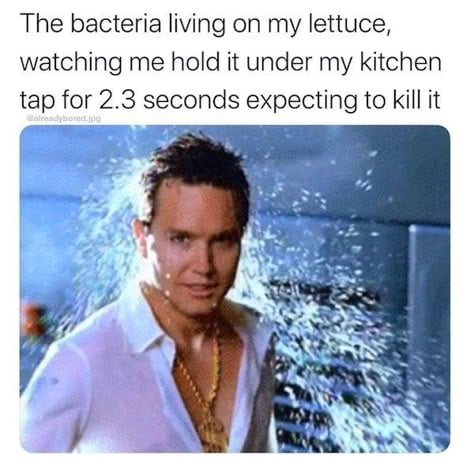this post was submitted on 23 Oct 2024
1010 points (97.2% liked)
memes
15795 readers
5433 users here now
Community rules
1. Be civil
No trolling, bigotry or other insulting / annoying behaviour
2. No politics
This is non-politics community. For political memes please go to [email protected]
3. No recent reposts
Check for reposts when posting a meme, you can only repost after 1 month
4. No bots
No bots without the express approval of the mods or the admins
5. No Spam/Ads
No advertisements or spam. This is an instance rule and the only way to live.
A collection of some classic Lemmy memes for your enjoyment
Sister communities
- [email protected] : Star Trek memes, chat and shitposts
- [email protected] : Lemmy Shitposts, anything and everything goes.
- [email protected] : Linux themed memes
- [email protected] : for those who love comic stories.
founded 2 years ago
MODERATORS
you are viewing a single comment's thread
view the rest of the comments
view the rest of the comments

They've studied it and you're wrong
https://portal.ct.gov/caes/fact-sheets/analytical-chemistry/removal-of-trace-pesticide-residues-from-produce
The correct answer is 9/12 pesticides are removed by Simple rinsing with water. Detergents do not improve results compared to mechanical removal via rinsing for 30 seconds.
Personally I wouldn't call mechanical action of rubbing to be rinsing. I would have liked to see the % removed, but skimming that article I didn't see. Also in my experience people don't rub for 30 literal seconds, the people I watch are lucky to break 5 seconds.
But the main point I want to make is that baking soda is a base that breaks down the pesticide.
AIEW being alkaline electrolyzed water, which I understand to be baking soda.
https://pmc.ncbi.nlm.nih.gov/articles/PMC6388112
AlEW was not the baking soda, it's a separate thing if I understood it correctly.
Additionally you're complaining that nobody rinses their food for 30 seconds while expecting them to bathe it in high ph water for 45 minutes??
Furthermore they were comparing it not with rinsing and running but rather just soaking it in water for 20 minutes.
And despite all that card stacking water still was 69% removal at its high range, which overlaps significantly with the low range of the chemical baths.
I'll keep rinsing and running, thanks.
Oh you're right looks like AIEW and sodium bicarbonate are different, but they are in the same tree.
Other info:
You don't have to "bathe" your produce (which conjures up imagery of scrubbing the whole time), you just let it sit afaik. There is a planning factor, but I can plan ahead and let it soak. Takes no more time.
You're comparing high range of one (water) with low range baking soda (which you call chemical bath), when there are massive ranges? That (along with misleading terms) is bad faith discussion there. So ciao.
It's a chemical bath because there are various chemicals that they're using to bathe them. I was lumping ozone bath, sodium bicarb bath and AlEW bath together and they're all 3 different chemicals.
It's a bath because they're being bathed which has nothing to do with scrubbing.
AlEW bath is 48–85% after 45 minutes at a PH of 12
Refrigeration was 60.9–90.2%. A 20 minute water bath was 26.7–62.9%.
My advice is, and always was, scrub your veggies for 30 seconds before use.
Your advice is plan it out so that you've got a high PH solution that you leave your veggies in for 45 minutes before use.
If you see those as equal I have no idea how. I cook all the time - the amount of times that I've got 45 minutes of prep before starting is next to 0. I can't eat at 9pm every night because I spent an hour waiting around for veggies to purify when I can simply wash them off in the sink.
It's insane that you wont see reason, but I get that you've decided you're right and can never change your mind.
It's not 45 minutes of prep, you're still talking as if you're ~~scrubbing~~ working on it the whole time. IF you have the option before you need it, you go stick it in the solution. And you don't need to sit there staring at it, you go do something else, you prep something else, again IF you have option before you need it.
And it's not 45 minutes or bust, the longer it goes the more you get. The first study mentioned was based on 20 minutes. These are diminishing returns with time, so I expect 10-15 minutes will get you a ton.
And to address your strawman, which I thought the options were so blindingly obvious that I didn't bother stating: If you don't have that planning option, yes you can scrub the hell out of it but know that will get off far, far, far less. That was the whole point.
You are the one that won't admit that you are wrong when the data is right there. You have to change it to you don't have time and strawmans. Inb4 your next round, you can say I overspoke in my first comment, more accurately: "They’ve studied that and it doesn’t get rid of [much/most] pesticides." Why do I bother with such bad faith. Ciao.